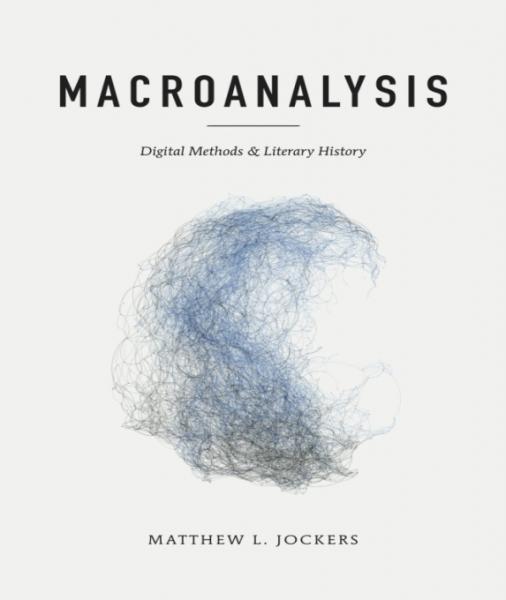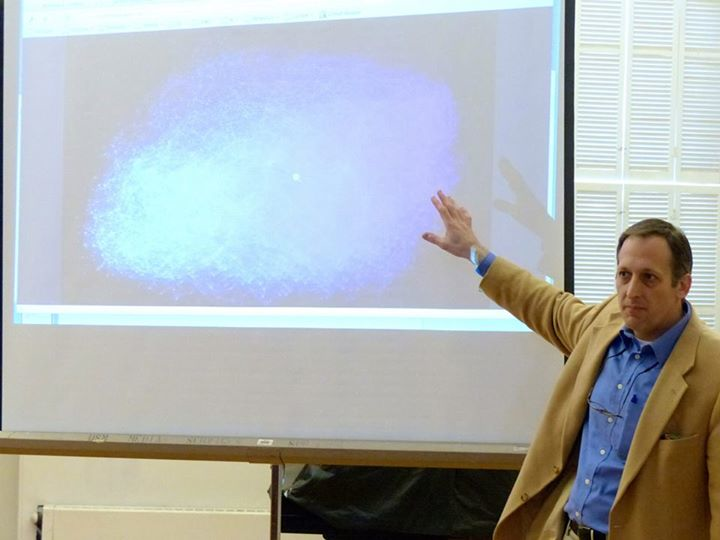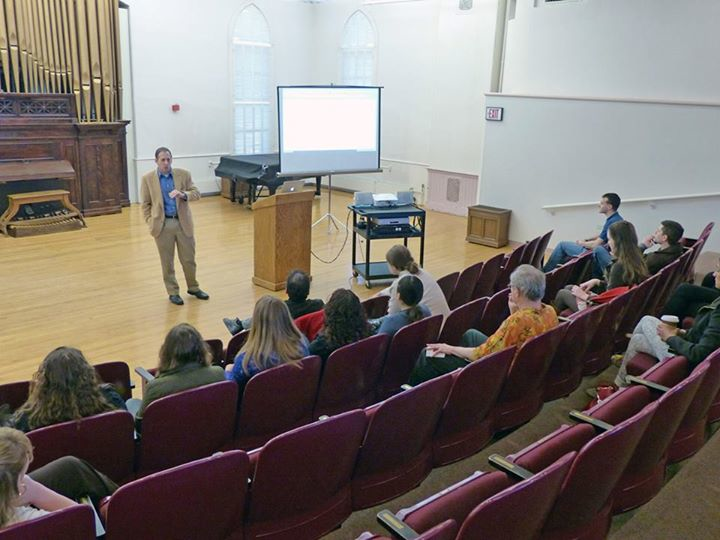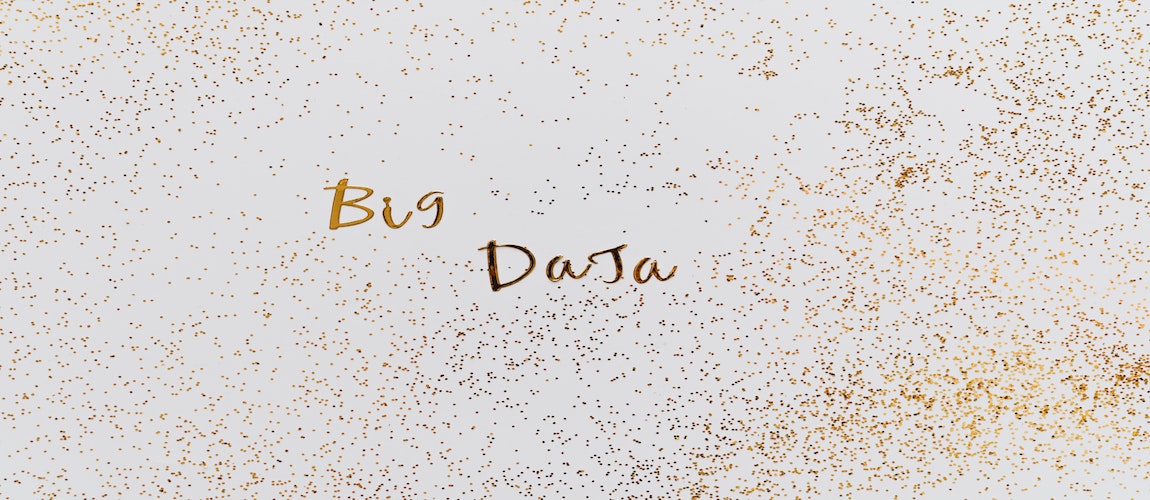In April 2014, Matthew Jockers, a nationally renowned digital humanities scholar, visited Portland as USM Libra Professor, a prestigious recognition confirmed by the University of Maine System that acknowledges excellence of scholarship. The Libra Professorship was established in 1989 by the University of Maine System Board of Trustees, in partnership with philanthropist Elizabeth Noyce and the Libra Foundation. The professorship enables the university to invite nationally and internationally recognized scholars who engage with faculty and students and exemplify excellence in their respective discipline.

Professor Jockers gave a public lecture at 7 p.m., Thursday, April 17, in the Talbot Auditorium, Luther Bonney Hall. The lecture was sponsored by the University of Maine Libra Professor Fund and the USM Departments of English, History, Political Science, Communication and Media, and Women and Gender Studies.
In the lecture titled “50,000 Books But Only Six Stories: A Macroanalysis of Plot,” Jockers presented “macroanalysis” as a unique methodology to examine literary texts and data with digital technology for patterns and trends not readily apparent through conventional analysis.
Jockers’ Macroanalysis persuasively argues that working with big data can help literary scholars ask different kinds of questions about genre and literary history and gender and stylometry hitherto inconceivable due to the sheer lack of digital tools earlier. His approach to computational humanities leads him to develop a methodology he calls “macroanalysis,” which involves text encoding, data cataloging and tagging, big data mining, topic modeling, and text mining. Jockers’ study of Irish American literature involves geo-spatial data analysis, as he examines a 150-year period of Irish American writing in both the Eastern and Western regions of the Mississippi, an approach that yields a nuanced understanding of how place influences cultural identity, and how literary writing embodies distinctions between urban and frontier sensibilities.
Another approach to digital humanities that Jockers takes up in his research is metadata analysis. What happens when metadata and stylometry, which studies the language, rhetoric, and syntax of texts in order to ascertain styles and identity markers, intersect? Jockers’ research shows that computational data crunching and analysis can lead us to link texts with writers, books with authors, discourses with communities of textual producers. His analysis of gender and stylometry raises intriguing questions of gender and discourse analysis in the context of metadata collection, tagging, and social constructions of identity.

“Digital technologies significantly impact almost all spheres of education and social life,” said John Muthyala, USM Professor of English, who proposed the event for the Libra Professorship, and leads the USM Digital Humanities initiative. “Thanks to digital tools, we now have access to millions of texts, which can be tagged, encoded and made available for computational analysis and scholarly research. “This raises important questions,” Muthyala continued. “What kinds of evidence do computational analyses of the humanities yield? What is the nature of this evidence, and what insights can such evidence offer in shaping our understanding of literature, history, philology, education, macroeconomics, statistics, public policy, software languages, and the social and behavioral sciences? These are the questions that Jockers’ scholarship addresses in provocative ways and with rigorous analysis.”

“With the increasing availability of digital texts and images, nearly any facet of computing can contribute to humanities research,” Clare Bates Congdon, former USM associate professor of computer science, noted. “These include interactive systems to help a scholar navigate a vast amount of information, databases for effective storage and retrieval of many different types of texts and images, data mining to recognize patterns or themes that might be of interest and visualizations to help us understand complex relationships.”
Andrea Stairs-Davenport, USM associate professor of education, observed, “The field of education has been drastically impacted by digital humanities. Current K-12 educational standards require that teachers and students learn how to read and research digital texts and collaborate with others locally and globally in producing digital texts. Known as “new literacies,” “21st century literacies,” and “multiliteracies” in the field, digital humanities are a part of life in K-12 schools.”

During his visit at USM, Prof. Jockers, a faculty fellow at the Center for Digital Research in the Humanities and director of the Nebraska Literary Lab at the University of Nebraska, gave a public lecture, visited two classes at the Gorham campus, had a working lunch with the members of the Research Cluster on Digital Humanities and project leaders of Digital Maine, an MEIF funded program (Maine Economic Improvement Fund), and conducted an session with faculty, students, administrators, and community partners to address the impact of digital studies/humanities on higher education.
—John Muthyala, Professor
Department of English
University of Southern Maine


